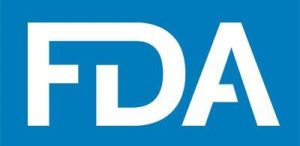 On August 15, 2023, the Food and Drug Administration (FDA) issued its updated guidance on informed consent for clinical investigations. The FDA’s updated guidance is titled Informed Consent Guidance for IRBs, Clinical Investigators, and Sponsors. Informed consent enables prospective subjects to understand the relevant information concerning a clinical investigation while also providing them the opportunity to pose questions, deliberate on participation, and grant voluntary agreement. The guidance emphasizes the continuation of information dissemination throughout the investigation, ensuring transparency and subject autonomy throughout the investigation’s progress. The guidance also provides insight into various aspects of the informed consent process, from communication of new information to subjects’ rights and privacy considerations. Additionally, the guidance highlights the regulatory framework under 21 C.F.R. § 50, which applies to a range of clinical investigations, from drugs and medical devices to food and color additives.
On August 15, 2023, the Food and Drug Administration (FDA) issued its updated guidance on informed consent for clinical investigations. The FDA’s updated guidance is titled Informed Consent Guidance for IRBs, Clinical Investigators, and Sponsors. Informed consent enables prospective subjects to understand the relevant information concerning a clinical investigation while also providing them the opportunity to pose questions, deliberate on participation, and grant voluntary agreement. The guidance emphasizes the continuation of information dissemination throughout the investigation, ensuring transparency and subject autonomy throughout the investigation’s progress. The guidance also provides insight into various aspects of the informed consent process, from communication of new information to subjects’ rights and privacy considerations. Additionally, the guidance highlights the regulatory framework under 21 C.F.R. § 50, which applies to a range of clinical investigations, from drugs and medical devices to food and color additives.
Under the new guidance, the consent process must not include exculpatory language requiring a subject to waive any of their legal rights or release the clinical investigation’s investigator, the sponsor, the institution, or its agents from liability for negligence. The FDA defines “exculpatory language” as language that has the general effect of freeing an individual or entity from malpractice, negligence, blame, fault, or guilt.
In addition, the FDA requires that the information given to prospective subjects be in language understandable to the prospective subject. The FDA’s guidance defines “understandable” as presenting information to prospective subjects in a language and at a level the subjects can comprehend, including explanations of any relevant scientific and medical terms.
The FDA’s new informed consent guidance is an updated roadmap for ethical clinical research. It underscores the intricate process of informed consent, delineates responsibilities across an investigation’s stakeholders, and provides clarity into the FDA’s review processes. Researchers, institutions, sponsors, and institutional review boards (IRBs) are encouraged to review and incorporate the guidance to ensure compliance and ethical practice in their clinical investigations.
